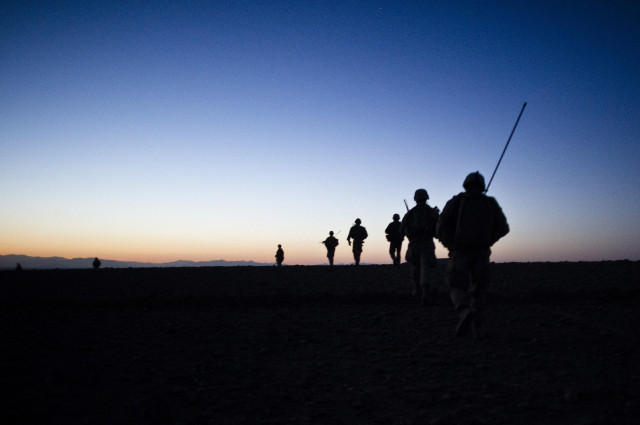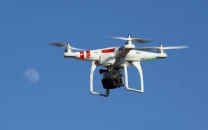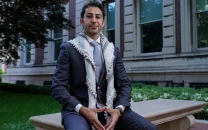US official signals end to war against al Qaeda
Pentagon general counsel Jeh Johnson says al Qaeda will eventually become so weak there won't be need for all-out war.

The United States must prepare for a time when it no longer is at war with al Qaeda and when sweeping legal powers ushered in after the September 11, 2001 attacks come to an end, the Pentagon's top lawyer said.
The address by Pentagon general counsel Jeh Johnson marked the first time a senior US official publicly raised the possibility of an end to the so-called "war on terror," launched by former president George W Bush in the aftermath of the 9/11 attacks on New York and Washington.
With the US military campaign against al Qaeda now entering its 12th year, "we must also ask ourselves: how will this conflict end?" Johnson said Thursday in remarks delivered at the Oxford Union in Britain.
The terror network, which is under steady pressure, eventually will become so weak that it would no longer will make sense to maintain a legal framework for all-out war, Johnson said, according to a text released by the Pentagon.
"I do believe that on the present course, there will come a tipping point - a tipping point at which so many of the leaders and operatives of al Qaeda and its affiliates have been killed or captured, and the group is no longer able to attempt or launch a strategic attack against the United States, such that al Qaeda as we know it, the organisation that our Congress authorised the military to pursue in 2001, has been effectively destroyed," he said.
It would then fall to law enforcement and intelligence agencies to go after al Qaeda's remnants, said Johnson, a long-time political ally of President Barack Obama.
"At that point, we must be able to say to ourselves that our efforts should no longer be considered an 'armed conflict' against al Qaeda and its associated forces," he said.
Instead, the government would pursue "a counterterrorism effort against individuals who are the scattered remnants of al Qaeda, or are parts of groups unaffiliated with al Qaeda, for which the law enforcement and intelligence resources of our government are principally responsible, in cooperation with the international community - with our military assets available in reserve to address continuing and imminent terrorist threats."
The war against al Qaeda has been cited to justify covert intelligence operations and unilateral military action around the world against suspected militants, including a major drone bombing campaign in Pakistan and the indefinite detention of alleged al Qaeda members at a US-run prison in Guantanamo Bay, Cuba.
The US administration chose to address the issue before an audience in Britain, where the government has harbored misgivings about the legality of the drone bombing raids.
The drone air war dramatically increased since Obama entered the White House in 2009, causing an unknown number of civilian casualties.
US officials, however, reportedly are examining stricter rules that would limit the open-ended, ambiguous nature of the drone raids.



















COMMENTS
Comments are moderated and generally will be posted if they are on-topic and not abusive.
For more information, please see our Comments FAQ